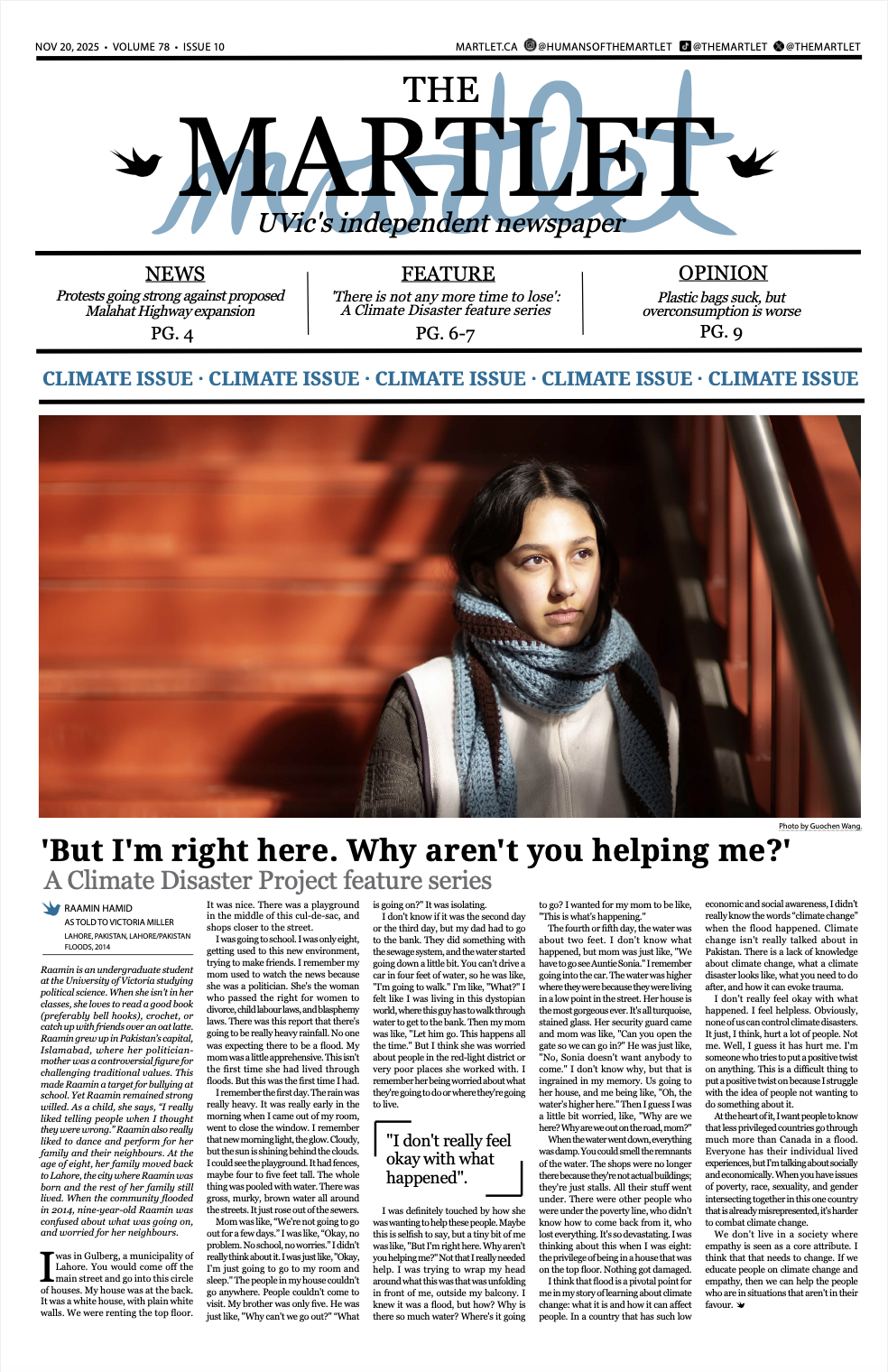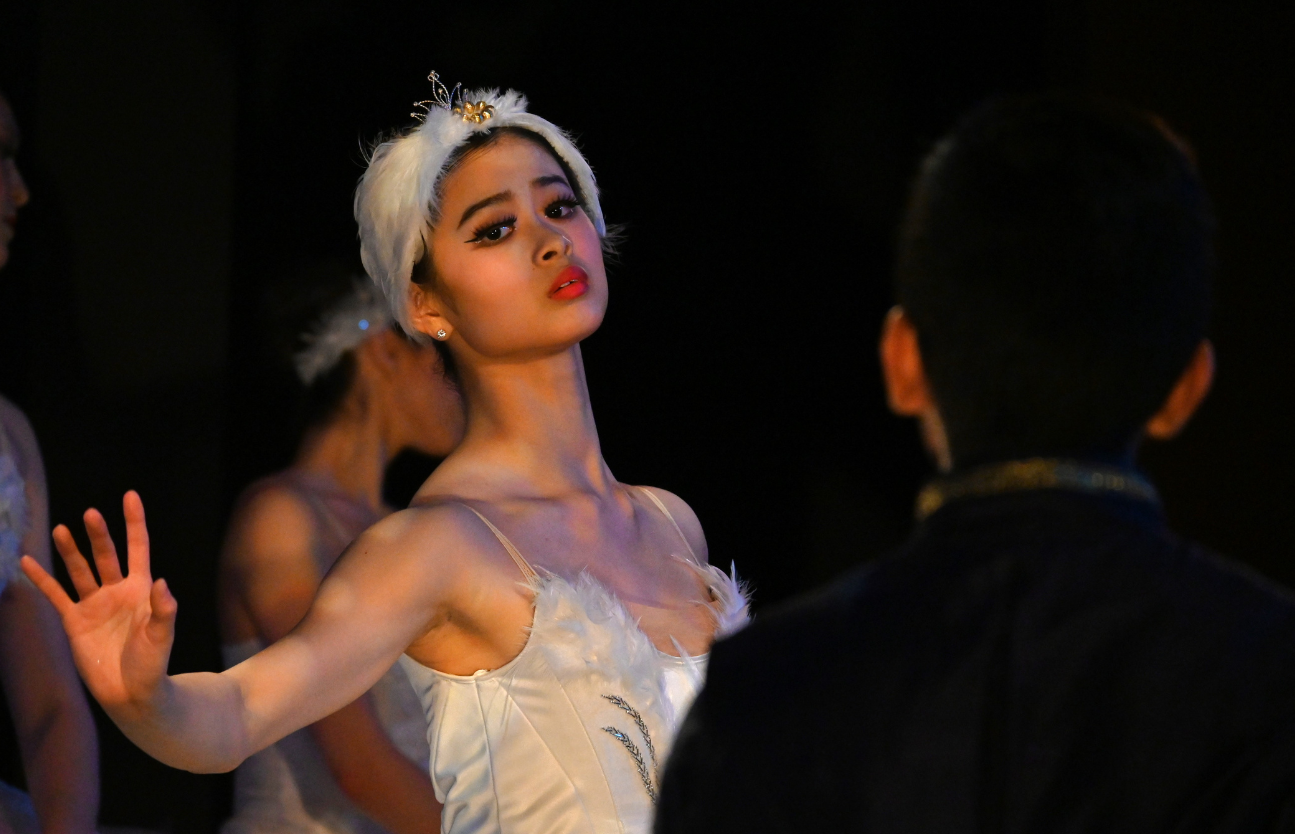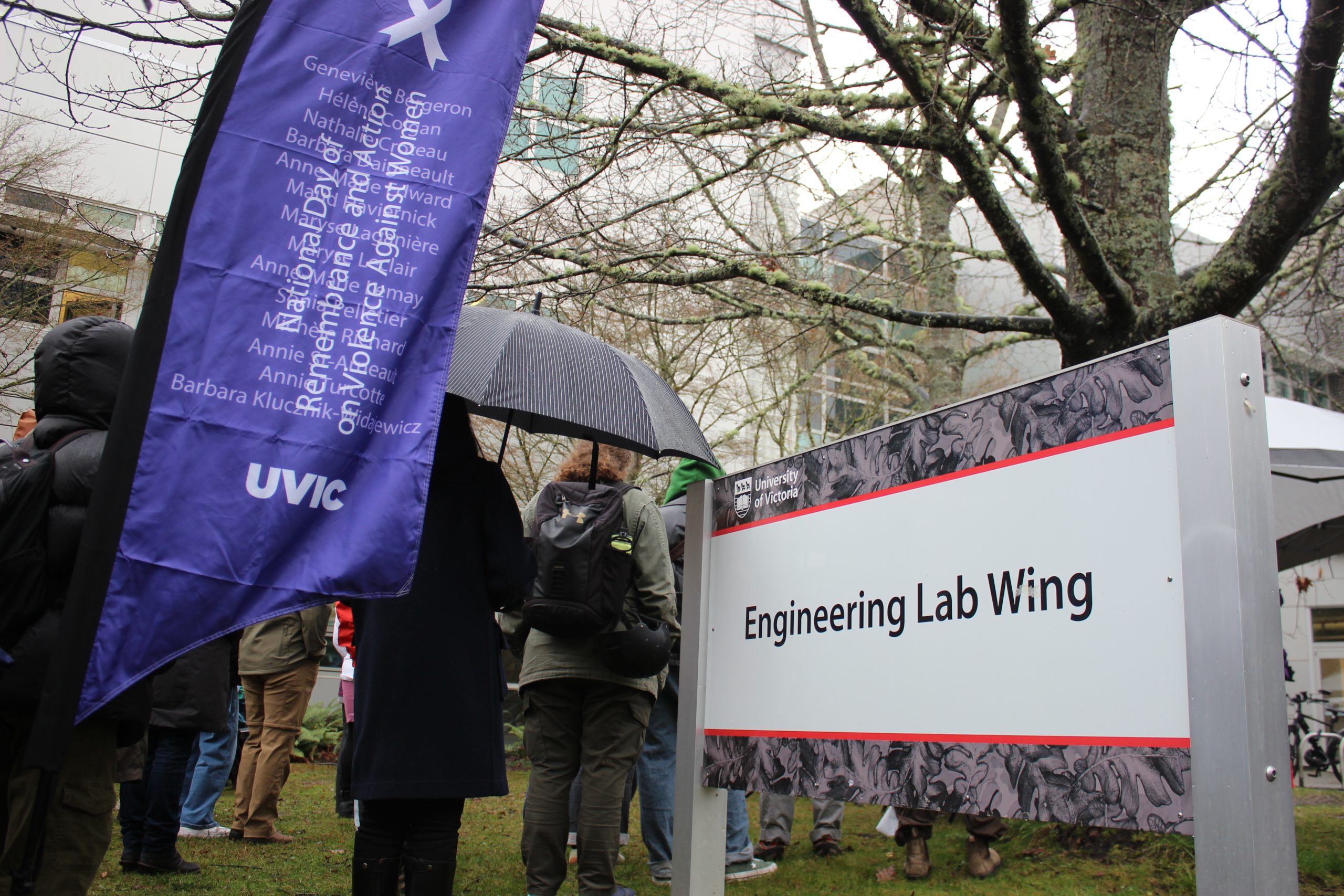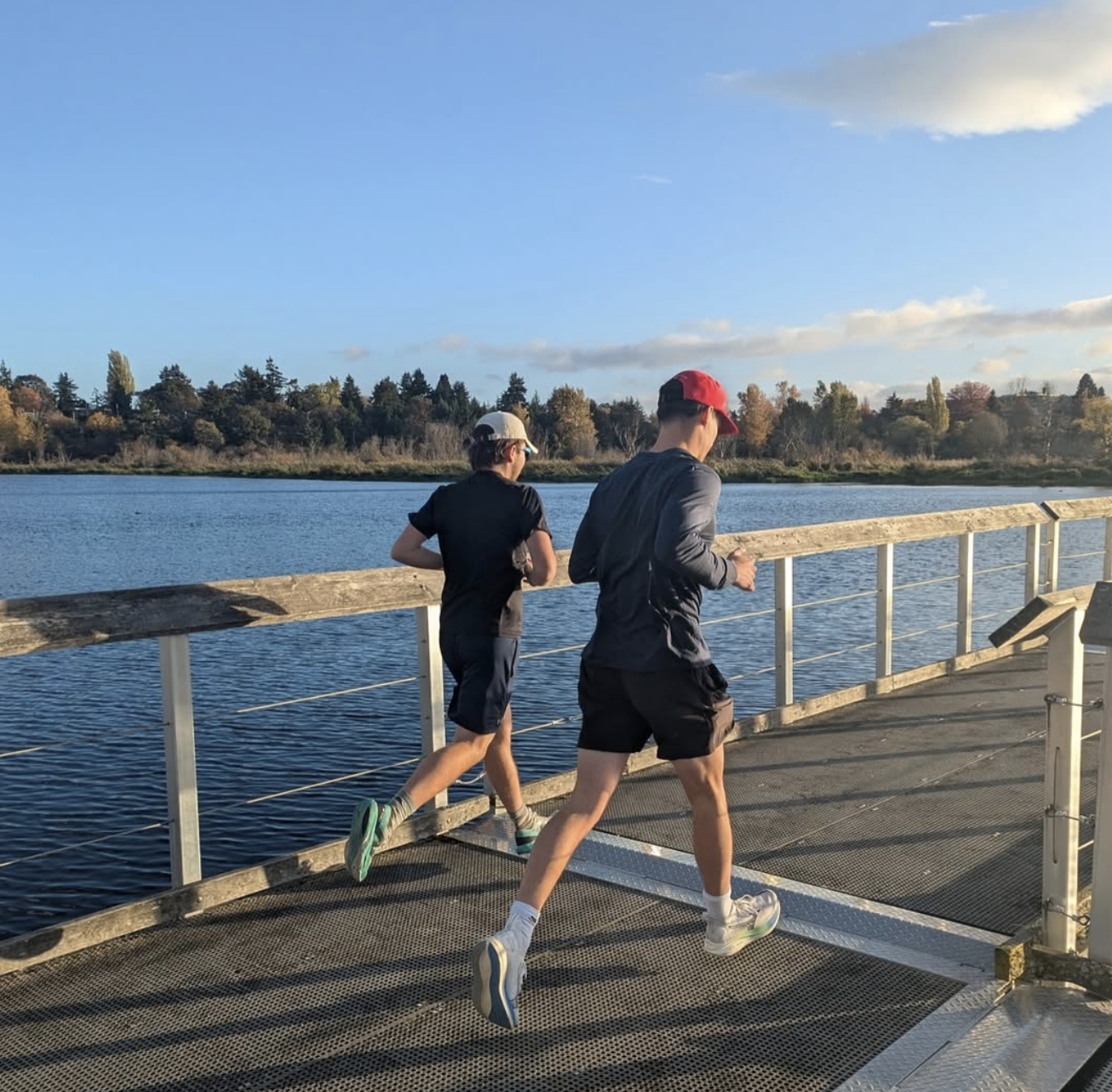Funding for UVic housing, as well as taxes on soft drinks and increased income taxes for the wealthy one per cent included in 2020 Budget
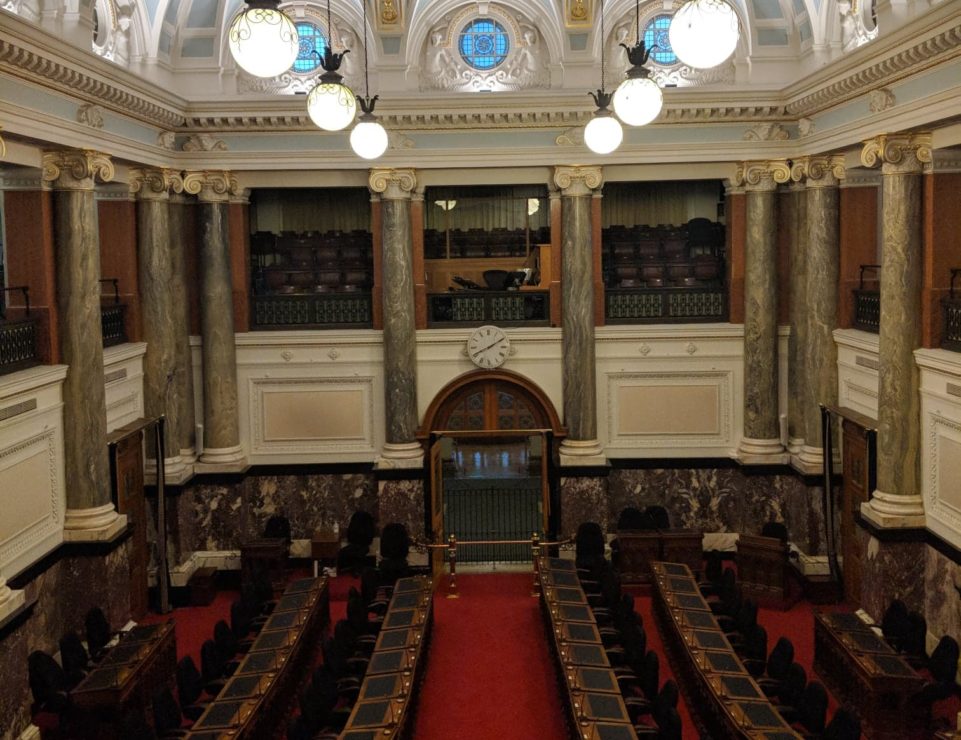
UVic students could receive up to $1 000 more in grants per year with the newly-announced B.C. Access Grant. The needs-based grant will be assessed alongside StudentAid BC, and accompany the federal government’s existing Canada Access Grant to provide students in four-year degree programs with up to $4 000 per year.
The grant was announced today in the province’s budget, which also included continued investments in UVic’s student residence project, an increased rate of taxation for the top income tax bracket, and including soft drinks in the provincial sales tax (PST).
“The changes we have made are all about making lives better today and creating opportunities that last a lifetime — opportunities to put down roots, contribute to your community, and have a job that provides a good quality of life,” said the Minister of Finance, Carole James, at the B.C. Legislature today.
The province’s 2020-2021 budget projects a $227 million surplus, with a 15.5 per cent taxpayer-supported debt-to-GDP ratio. This is up from a $203 million surplus and a 14.6 per cent taxpayer-supported debt to revenue ratio last year.
B.C. Access Grant
Students will have more money in their pockets with the government’s newly announced post-secondary grant. According to the budget, the new B.C. Access Grant will allow B.C. post-secondary students in lower-income brackets to be eligible to receive up to $4 000 a year towards any degree, diploma, or certificate program.
The B.C. Access Grant will be up and running in time for the Autumn/Winter 2020 semester.
To apply for the grant, students will go through the normal application process on the StudentAidBC website. As with B.C. student loans, only residents of B.C. are eligible — students from other provinces and international students are not eligible.
How much money a student receives is dependent on a number of factors, mainly their family’s income and how many dependents they have. Once accepted, students will be given the money upfront at the start of the fall semester and can use it for tuition, housing, or other necessities of post-secondary education. Unlike student loans, however, students will not have to pay back the government.
This grant will complement the Canada Access Grant, which supplies low- to middle-income students enrolled full-time in a four-year program with up to $3 000 of funding a year. According to the government, the B.C. Access Grant will add $1 000 on to the Canada Access Grant for eligible students (for a total of $4 000).
The main aim of this new grant is to level the playing field between degree programs by covering students not supported under the Canada Access Grant, such as those enrolled in programs up to two years in duration. Now, these students will be able to receive a maximum of $4 000 through the grant. This means that regardless of your program, if you are attending a B.C. university, are a B.C. resident, and are from a low or medium-income bracket, you can receive up to $4 000 in grant funding.
The B.C. Access Grant will be handed out based on financial need and replaces the B.C. Completions Grant. For example, the government estimates a student with a total family income of around $60 000 would be eligible for the full $4 000 B.C. Access Grant. A student from a higher income bracket may not be eligible for the grant at all.
The province will allocate $41 million per year towards the Access Grant, including $8 million in new investments by the province and some of the $37 million of yearly funding previously allocated to the Canada Completions Grant.
Continued funding for UVic’s new residences
The budget also included an investment into UVic’s new student housing project. This is the largest capital investment in any post-secondary institution in the province this year — at $123 million in the 2019-2020 fiscal year alone. This was previously announced, and remains unchanged since the project’s initial announcement.
Importantly, this money is just on loan to UVic and will be paid back by housing fees. The University of Victoria Foundation is also contributing $45 million. The project is expected to cost $201 million before it is completed in 2023.
The new housing project includes 620 new beds, a new dining facility, and a multi-purpose program space. This project has been lauded for its sustainable design and energy efficiency, which aligns with the government’s CleanBC plan to reduce B.C.’s carbon footprint.
Income tax increase for the top one per cent
Starting in 2020, taxable income beyond $220 000 per year will be subject to a personal income tax increase of 3.7 per cent — from 16.8 per cent to 20.5 per cent. This new tax increase will affect the top one per cent of income earners in B.C..
An estimated 70 per cent of those in that top one per cent are men and half of them are making more than $1 million a year in income alone.
New tax on soda and heated tobacco products
The Government also announced that soft drinks will no longer be exempt from PST. Soft drinks, whether from a soda gun or from a two-litre bottle, will be taxed at the same seven per cent in PST as all other products.
Previously, these products were exempt as they were classified under food and drinks which, as essential needs, are usually exempt from that PST. This new initiative aims to deter consumers, particularly young people, from consuming these sugar-filled beverages.
Another new tax initiative looks at heated tobacco products, which builds on the province’s vaping tax they implemented earlier this year. As of April 1, any heated tobacco products will be taxed at a default rate of 29.5 cents per product. This includes products that are like vapes, but instead of using nicotine syrup, they actually contain tobacco.
The budget generally represents a “stay-the-course” approach. The government’s third budget maintains the same investments in childcare, transportation, education, and health — with not many new funding announcements. But with the provincial election on the horizon in 2021, the government is cognizant of needing to affirm their ongoing commitments.
“After nearly three years of choices that put people first… life in B.C. is getting better everyday,” James said.




